Filter News
Area of Research
News Topics
- (-) Quantum Science (66)
- (-) Statistics (3)
- (-) Transportation (94)
- 3-D Printing/Advanced Manufacturing (116)
- Advanced Reactors (34)
- Artificial Intelligence (87)
- Big Data (50)
- Bioenergy (88)
- Biology (96)
- Biomedical (58)
- Biotechnology (21)
- Buildings (55)
- Chemical Sciences (60)
- Clean Water (29)
- Climate Change (94)
- Composites (25)
- Computer Science (184)
- Coronavirus (46)
- Critical Materials (25)
- Cybersecurity (35)
- Decarbonization (75)
- Education (4)
- Element Discovery (1)
- Emergency (2)
- Energy Storage (107)
- Environment (192)
- Exascale Computing (36)
- Fossil Energy (5)
- Frontier (41)
- Fusion (53)
- Grid (61)
- High-Performance Computing (83)
- Hydropower (11)
- Irradiation (3)
- Isotopes (49)
- ITER (7)
- Machine Learning (46)
- Materials (141)
- Materials Science (136)
- Mathematics (6)
- Mercury (12)
- Microelectronics (2)
- Microscopy (51)
- Molten Salt (8)
- Nanotechnology (60)
- National Security (59)
- Net Zero (12)
- Neutron Science (130)
- Nuclear Energy (105)
- Partnerships (40)
- Physics (59)
- Polymers (31)
- Quantum Computing (31)
- Renewable Energy (2)
- Security (24)
- Simulation (45)
- Software (1)
- Space Exploration (25)
- Summit (57)
- Sustainable Energy (121)
- Transformational Challenge Reactor (7)
Media Contacts
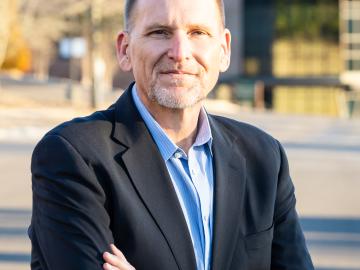
Robert Wagner, associate laboratory director for ORNL's Energy Science and Technology Directorate, has been selected to receive the George Westinghouse Gold Medal from the American Society of Mechanical Engineers, or ASME. The award recognizes his work to advance state-of-the-art clean power generation systems through research on combustion, fuel technologies and controls.

A team of researchers including a member of the Quantum Science Center at ORNL has published a review paper on the state of the field of Majorana research. The paper primarily describes four major platforms that are capable of hosting these particles, as well as the progress made over the past decade in this area.
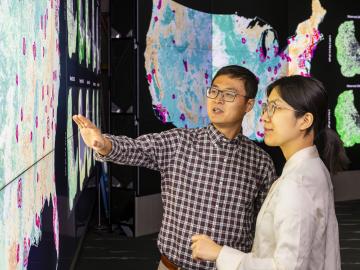
Scientists at ORNL completed a study of how well vegetation survived extreme heat events in both urban and rural communities across the country in recent years. The analysis informs pathways for climate mitigation, including ways to reduce the effect of urban heat islands.

The U.S. Environmental Protection Agency has approved the registration and use of a renewable gasoline blendstock developed by Vertimass LLC and ORNL that can significantly reduce the emissions profile of vehicles when added to conventional fuels.
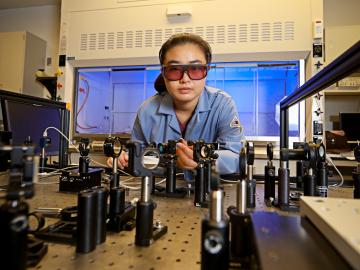
The Quantum Voices series is designed to share the stories of the quantum researchers and technical experts behind the Quantum Science Center’s past, present and future accomplishments. Chengyun Hua is highlighted for this edition, talking about her role in the Quantum Science Center.
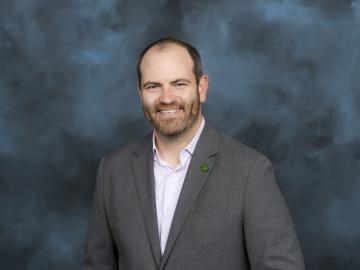
ORNL's Scott Curran, group leader for Fuel Science and Engine Technologies Research, has been named a fellow of SAE International and ASME.

Researchers simulated a key quantum state at one of the largest scales reported, with support from the Quantum Computing User Program, or QCUP, at ORNL.
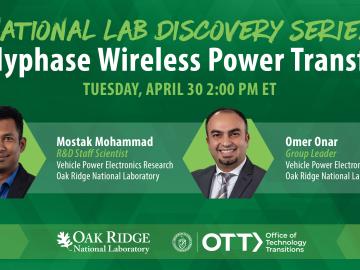
ORNL’s Omer Onar and Mostak Mohammad will present on ORNL's wireless charging technology in DOE’s Office of Technology Transitions National Lab Discovery Series Tuesday, April 30.
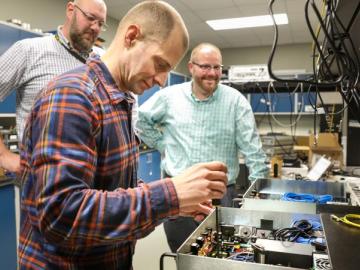
ORNL scientists have spent the past 20 years studying quantum photonic entanglement. Their partnership with colleagues at Los Alamos National Laboratory and private industry partner Qubitekk led to development of the nation’s first industry-led commercial quantum network. This type of network could ultimately help secure the nation’s power grid and other infrastructure from cyberattacks.
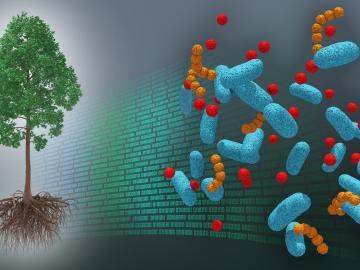
A first-ever dataset bridging molecular information about the poplar tree microbiome to ecosystem-level processes has been released by a team of DOE scientists led by ORNL. The project aims to inform research regarding how natural systems function, their vulnerability to a changing climate and ultimately how plants might be engineered for better performance as sources of bioenergy and natural carbon storage.




